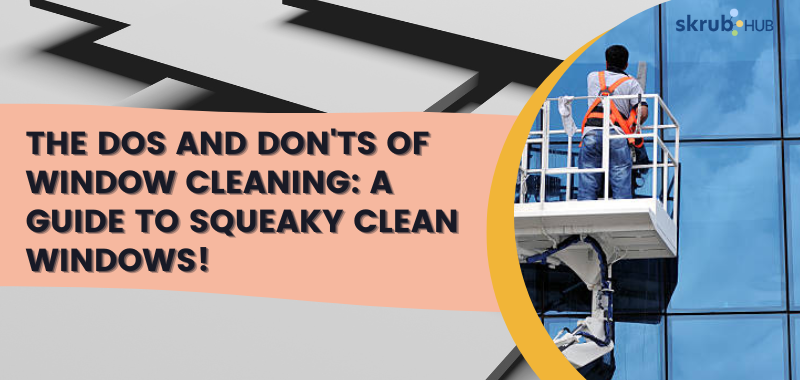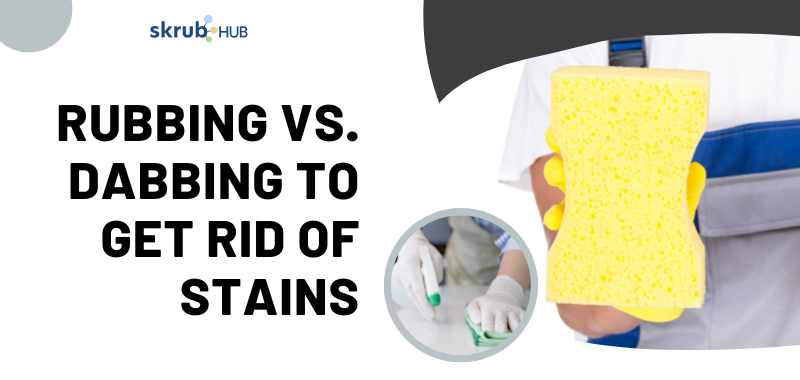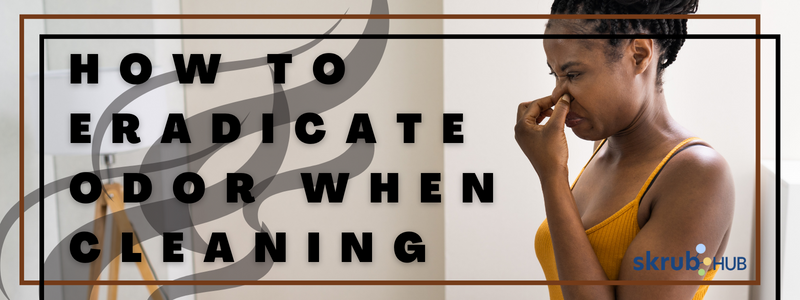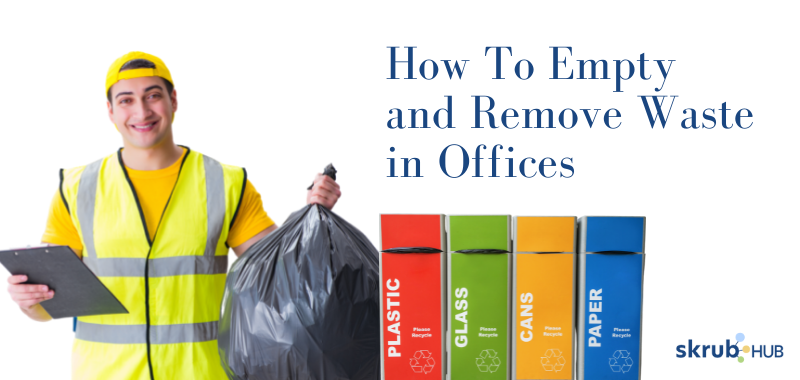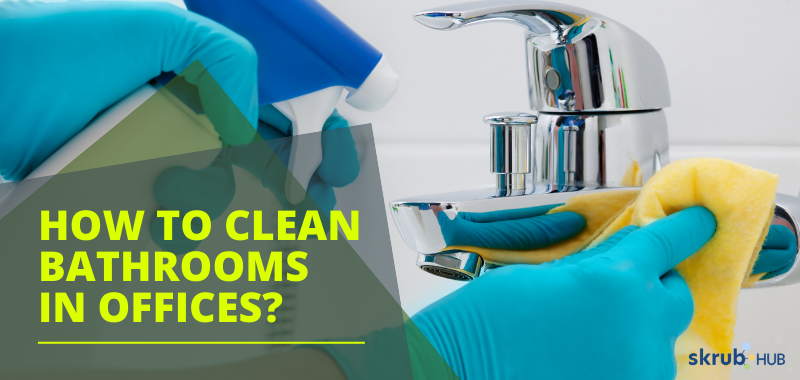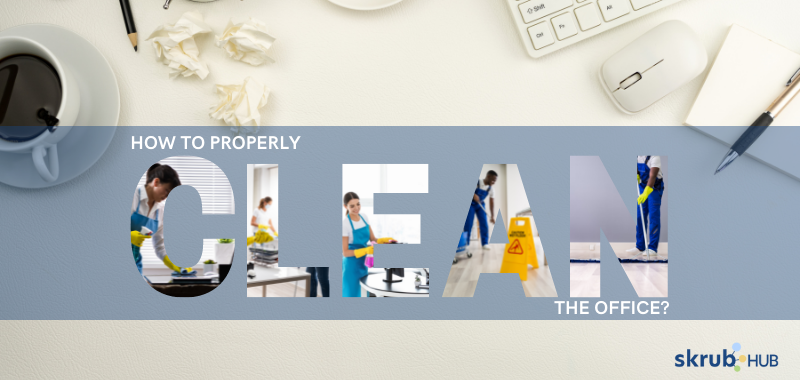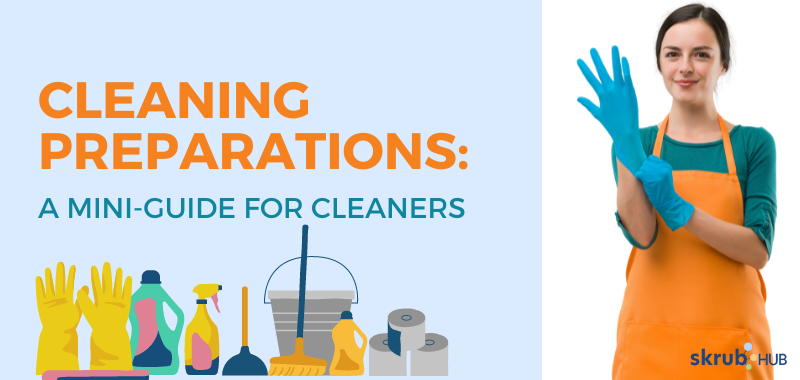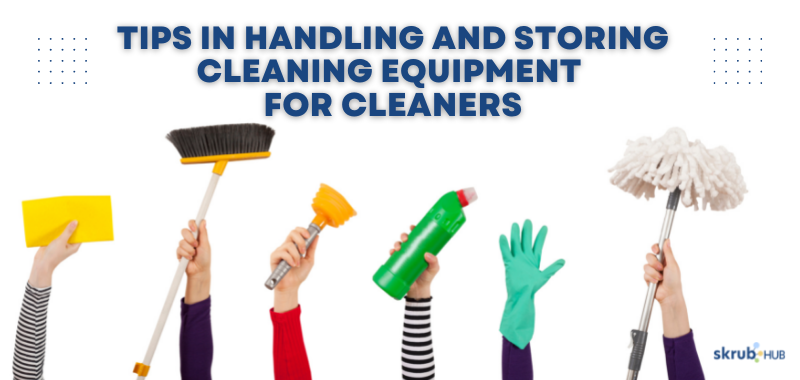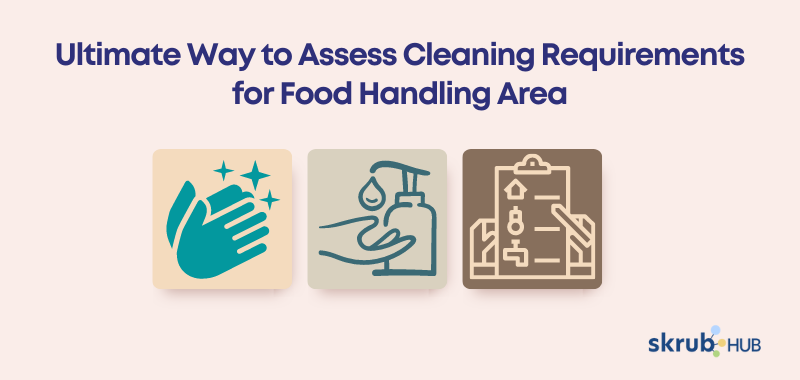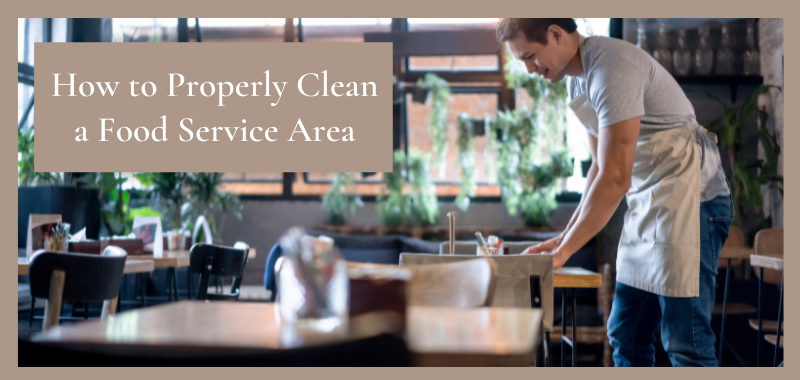
How Much should I Charge to Clean a House
How Much Should I Charge To Clean A House?
Planning on the pricing of package rates and hourly rates for cleaning jobs is crucial for a cleaning business. This might look easy, but when you realize you’d have to account for all the costs for cleaning, supplies, and other monthly fixed expenses such as insurance and rent, the task might seem intimidating.
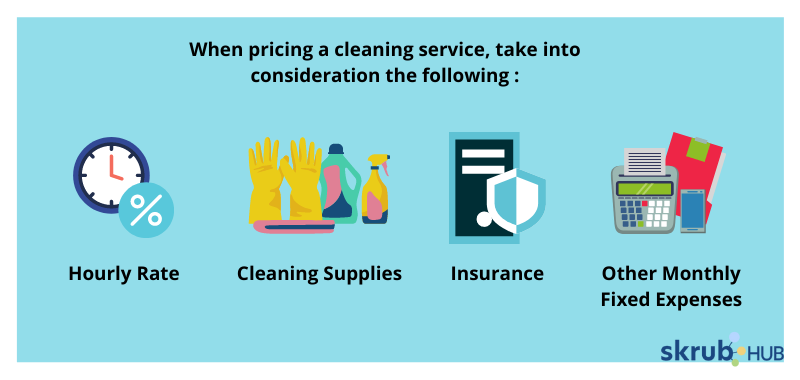
You’d have to account for all the costs for cleaning
Pricing becomes more important, especially if you are new to the industry and still trying to attract customers and entice them to become regulars. You’d have to come up with competitive prices and enough for you to make a profit and thrive.
How do you price cleaning?
To come up with price estimates of the services you’ll offer that benefit both your business and your clients, you’d have to do a market study, online research, and your own cost analysis.
Here are three general steps you need to do to get the suitable cleaning rates:
Step 1: Learn from Competitors
The first step is to identify the usual range of cleaning rates in the area you aim to cater to. Knowing the local rate will help you avoid under-or overpricing. Another factor to consider is your target clients. Offering low rates in an area mostly coming from the high-income bracket will make you miss out on higher returns while offering high rates to low- to middle-income clients will put off potential patrons. Your cleaning rates must match how much patrons are willing to pay for your services.
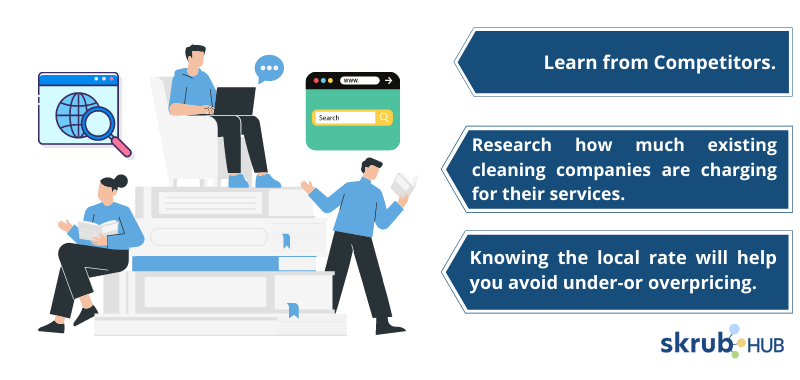
Your cleaning rates must match how much patrons are willing to pay for your services
To get an average of the cleaning prices in your area, research how much existing cleaning companies are charging for their services. The easiest way to do this is to Google their establishments and look for their prices on their websites.
Note that other companies will not post their prices on their websites. In that case, you can call and inquire about the rates of their standard cleaning services. You can also ask for any special cleaning services they might offer and their corresponding prices. You can take note of these special services and come up with your own offerings for your business when you start operating or keep them in a file in case you want to expand shortly.
Organize the rates you’ve researched. Target to get rates from at least three companies. Watch out for any significant price discrepancies and possible reasons for such. However, most of the time, you’ll see that prices are almost the same as this industry is fairly competitive when it comes to pricing.
Step 2: Get the Average Cleaning Rates
Use the rates you’ve found online or through inquiries to calculate an average cleaning rate. Alternatively, you can also easily find average cleaning rates for major cities worldwide on the Internet. For example, here in Australia, the average general house cleaning rate for a single cleaner is 45 AUD per hour and 50 AUD per hour for general commercial space cleaning. This is the average cleaning rate for most establishments in big cities in Australia like Sydney, Melbourne, and Brisbane.
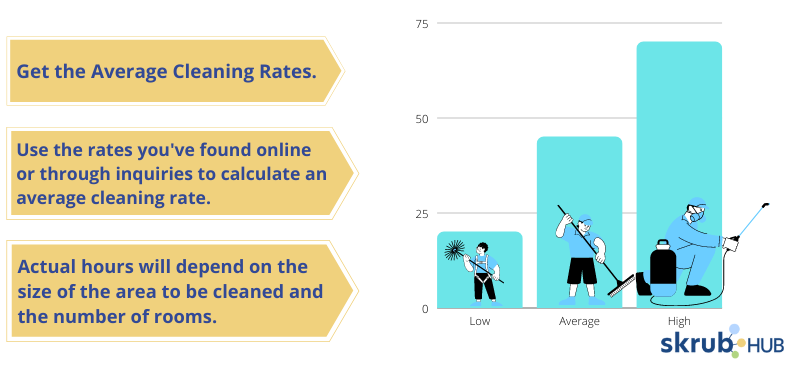
Use the rates you’ve found online or through inquiries to calculate an average cleaning rate.
However, you should remember that this is just an estimate and that the actual hours will depend on the size of the area to be cleaned and the number of rooms. In addition, many companies will offer add-on services with respective additional fees, such as carpet, freezer, and window cleaning.
Step 3: Make Your Own Cost Analysis
Aside from doing market research, the most important step is to do your own cost analysis. You need to consider the return on investment (the time it would take to break even). Let us walk through common factors you’d have to consider for your cleaning rates:
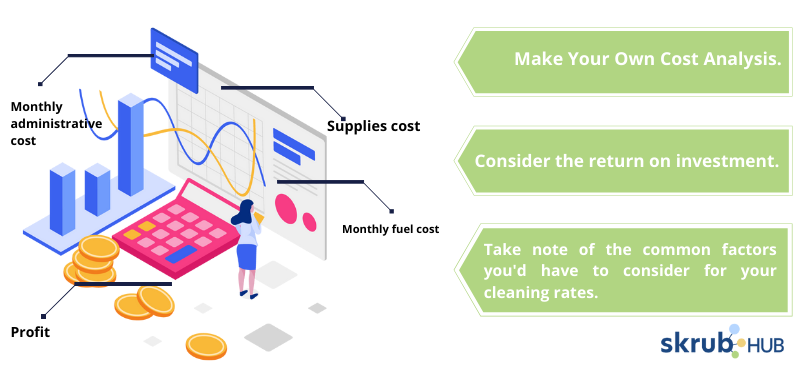
Make Your Own Cost Analysis
- The minimum wage in your state/territory: Account for the number of employees on your roll. Multiply this with the hourly rate of your crew. Do not forget to include yourself as an employee. According to the Cleaning Services Award, the minimum hourly rate for a cleaner ranges from 22 to 24 AUD, depending on their level of expertise.
- Supplies cost: Calculate how much cleaning supplies will cost and how many houses you can clean.
- Monthly fuel cost: Traveling to and from house locations and the work office of your crew will entail fuel costs. Of course, this will depend on the radius of the area you’re accommodating. To minimize fuel expenditure, you can lump together clients from nearby areas on the same day or do route planning to save travel time.
- Monthly administrative cost: This is also called overhead cost, and this includes but is not limited to rent, insurance, advertising, and utilities for your office space.
- Goods and services tax (GST) and other taxes: You must also add the cost of paying tax in running your business.
- Profit: Of course, running a business not only need to cover the actual cost to break even but should also be profitable. A good rule of thumb is to make 10%-20% profit on top of the factors above in this list.
How much should I charge to clean a four-bedroom house?
One type of house cleaning charging method aside from hourly rate is through room rate. A room rate is sometimes preferred compared to an hourly rate because the former already accounts for the different cleaning needs of each room in residence. Additionally, this method is best for jobs wherein the rooms are in relatively good condition and only need regular cleaning.
It might be good to charge a flat rate of $75-$120 for a one-bedroom and one-bathroom house and add $25 for each additional bedroom and $10 for additional bathrooms. With these rates, it is reasonable to charge $220 to clean a four-bedroom house for a weakly cleaning task.
How much should I charge to clean a 2000 sq. ft house?
Another way to price cleaning services is through a square footage rate. This pricing method is simple to calculate, especially when a client asks for an estimate on the spot. The square footage rate will depend on the size of the house and the type of cleaning service they’re requesting – whether they want regular, deep-cleaning, or moving-out cleaning.
A regular (weekly or bi-weekly) cleaning generally charges 5-15 cents per square foot. You can give discounts to quotes for the large square area. Deep cleaning would require more effort and time and can go as high as 33 cents per square foot. A move-out cleaning rate is between regular and deep cleaning and can reasonably cost about 22 cents.
If you are asked to deep-clean a 2000 sq. ft. house, you can ask for $600 for the one-time task. But if it is only regular cleaning, you can ask for $160 per weekly cleaning.
How do you quote a cleaning job?
The pricing method you’ll use in your company ultimately depends on you. There is no one-size-fits-all method for cleaning businesses. Instead, there are a lot of factors to consider, and ultimately using a combination of pricing methods might be the best for you. To help you decide, you can ask your patrons these questions:
- How many rooms and bathrooms do they have?
- What type of cleaning service would they like?
- What is the total area of their property?
- How far is the property from your establishment?
- Do they have pets?
- Is their property single-storied or double?
- What additional services would they want?
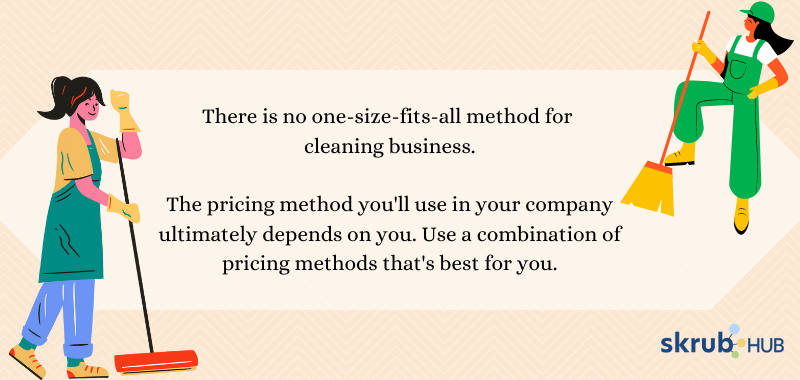
There is no one-size-fits-all method for cleaning businesses.
If the client is new to your business, it is best to visit their area first before giving them a quote. Seeing the place will help you better assess the job needed and provide a fair and reasonable estimate. In the end, your quote might be different from your competitors, and that is fine as long as it is right for both you and your patrons.
Related Post
The dos and don’ts of window cleaning: A guide to squeaky clean windows! A window is where you look out...
The difference between cleaning and disinfecting As cleaners, you always have to ensure you leave the area clean. Usually, you...
Cleaning processes vary depending on your preference. However, there are recommended processes that can be beneficial for you to do your...
How to remove pet soils from the carpet? Your home is where you find comfort and solace every day and whenever...
How to reach high fixtures and drapery for cleaning? – A quick solution to high-placed problems! A tidy house is...
How Color Coding is Essential in Cleaning People may not understand the significance of colours in the world. They might...
How to Eradicate Odor when Cleaning Scamming is also present in the cleaning world. Sometimes, you may feel like the...
How To Empty and Remove Waste in Offices While cleaning is an essential practice to follow, waste disposal is as...
How To Clean Bathrooms in Offices The main purpose of cleaning is to provide a safe and hygienic space for...
The Significance of Cleaning with Microfiber Products and Detergents Cleaning is of utmost essential, especially in offices where numerous people are...
How to Properly Clean the Office With the proper preparations, you are now equipped to face the cleaning properly. You will...
How to Clean Effectively In A Short Amount of Time? Cleaning varies on personal preference. Some may think that cleaning is...
Cleaning Preparations: A Mini-Guide for Cleaners It is always essential for you to prepare when cleaning an office building. By being...
How Much Should I Charge To Clean A House? Planning on the pricing of package rates and hourly rates for cleaning...
Tips in Handling and Storing Cleaning Equipment and Disposing Chemical for Cleaners Doing aftercare takes a lot of work to...
Ultimate Way to Assess Cleaning Requirements for Food Handling Area Having the food handling area clean is very significant in...
Cleaning a Food Service Area: How to Create a Cleaning Schedule Cleaning is an important aspect of maintaining a food service...
How to Properly Clean a Food Service Area Cleaners in a food service area are often seen cleaning the premises constantly....


